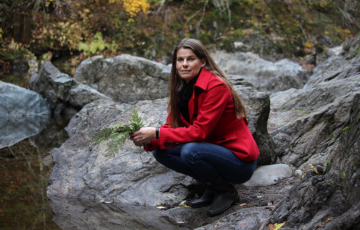Monitoring of Community Drinking Water
Environmental Health Officers work with water system operators, municipal governments, public health engineers and others to inspect and monitor community drinking water on a regular basis.
View water sampling results
Complaints About Drinking Water
If you have a complaint or concern about your drinking water, first contact your water supplier.
If you do not know who your water supplier is, or are unsatisfied with the response, please contact your local Environmental Health Office for assistance.
An Environmental Health Officer (EHO) will handle your complaint. EHOs have the authority to act as Drinking Water Officers under the Drinking Water Protection Act and Regulations.
To Submit a Complaint
Please provide:
- Your contact information
- The name and/or location of the drinking water system in question
- Details of the complaint
- Any other relevant information including any actions you may have taken to address the situation
Complaint Process
- The information is forwarded to your district EHO
- The EHO will initiate followup within 1-3 working days
- The EHO will undertake to resolve your concern and may contact you for more information
- If your complaint indicates a circumstance that may threaten the safety of your water supply, the EHO will provide information on your right to request a formal investigation under Section 29 of the Drinking Water Protection Act
- If you do not wish to request a formal investigation, the EHO will still respond to your complaint
- You will be advised of the action taken by the EHO and any outcomes
Formal Request for Investigation
If you feel that a threat to your drinking water exists, you may consider requesting an investigation under Section 29 of the Drinking Water Protection Act. A “threat” is defined in the Act as a circumstance, condition or thing that may result in water that is unsafe to drink.
The request must be made in writing and include all the information you have available to support your concerns.
Island Health has adopted the BC Ministry of Health Best Practices on Requests for Investigation of a Drinking Water Threat under the Drinking Water Protection Act.
The document contains a questionairre called Request for a Section 29 Investigation Under the Drinking Water Protection Act to help you provide as much information as possible to help the Drinking Water Officer make a decision about whether to investigate.
To make a Request for an Investigation:
- Print the online questionnaire (Interim Best Practices - Request for Investigation) and fill it out to the best of your ability. Fax, mail or bring the form to your local Environmental Health Office or
- Call or visit your local Environmental Health Office and ask for assistance
Investigation Process
- The EHO will review the request and contact you if more information is needed
- The EHO will consider whether an investigation is warranted
- You will be advised if the EHO decides against doing an investigation
- You will be advised of the results of any investigation that the EHO does undertake

